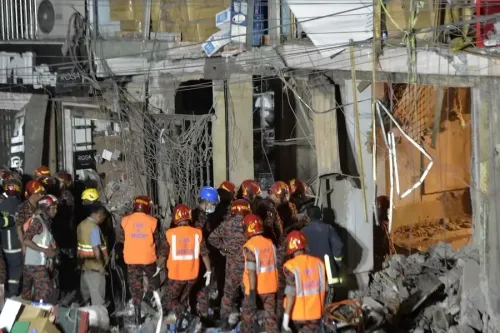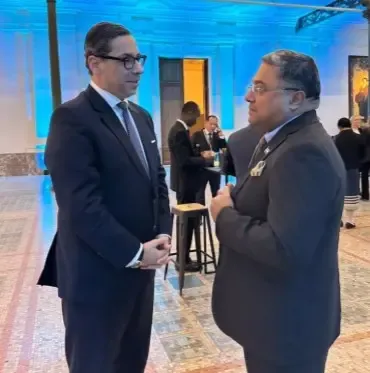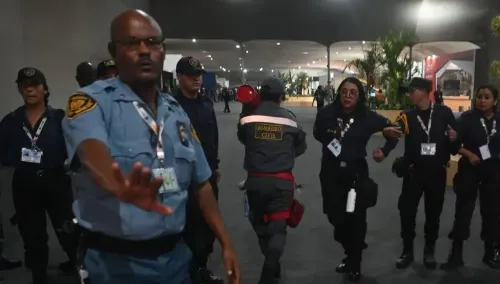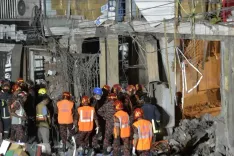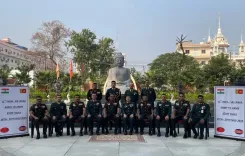Israel's Military Actions Pose Risks to Syria's Political Transition: UN Official
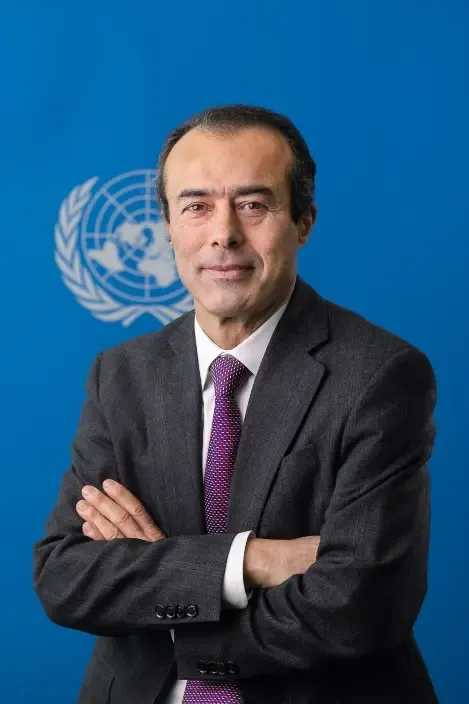
Synopsis
Key Takeaways
- Ongoing Israeli airstrikes threaten Syria's political transition.
- Over 300 airstrikes reported since December 2024.
- Recent attacks in Damascus and Daraa resulted in civilian casualties.
- IDF maintains multiple positions in the Golan Heights.
- UN emphasizes the importance of upholding international agreements.
United Nations, April 11 (NationPress) Israel's persistent military actions are jeopardizing Syria's delicate political transition and hindering its quest for peace and stability, a high-ranking UN official cautioned.
During a briefing at a Security Council meeting on Thursday, Khaled Khiari, assistant secretary-general for political and peacebuilding affairs, stated that hundreds of Israeli airstrikes have been reported across Syria since the fall of the Assad government in December 2024, particularly in the southwest, coastal regions, northeast, Damascus, Hama, and Homs, as reported by Xinhua news agency.
On April 3, reports indicated that Israel executed several airstrikes in Syria, including in Damascus, Hama military airport, and a military airport in Homs, marking one of the most significant escalations in recent months. Simultaneous attacks in Daraa reportedly led to nine civilian fatalities.
The Israel Defence Force (IDF) has publicly acknowledged establishing several positions in the separation area on the Golan Heights, while Israeli officials have expressed intentions to remain in Syria “for the foreseeable future,” as noted by Khiari. “Such facts on the ground are not easily reversed. They do threaten Syria's fragile political transition.”
“Syria's opportunity to stabilize after 14 years of conflict must be supported and protected, for both Syrians and Israelis,” he emphasized. “This is the only way regional peace and security can be realized.”
Jean-Pierre Lacroix, under-secretary-general for peacekeeping, also addressed the Security Council, noting that the IDF currently occupies 12 positions they have established on the Bravo side, located east of the separation area. They continue to build counter-mobility obstacles along the ceasefire line and have, on multiple occasions, conducted air operations across the ceasefire line.
Lacroix stressed the importance of all parties adhering to their duties outlined in the 1974 Disengagement of Forces Agreement, including ceasing any unauthorized presence in separation and limitation zones and avoiding actions that could compromise the ceasefire and stability on the Golan.
Khiari underscored the significance of the council's commitment to Syria's sovereignty and territorial integrity. He urged all parties to abstain from actions or interference that could further destabilize the nation.
“Syria is at a crossroads and deserves a chance to continue to work towards an inclusive political transition, allowing the Syrian populace to overcome conflict, rejuvenate their economy, fulfill their legitimate aspirations, and contribute to regional stability,” he stated.

